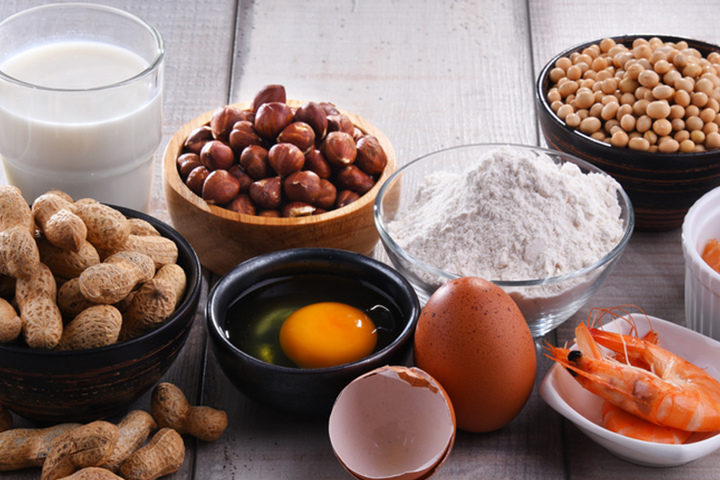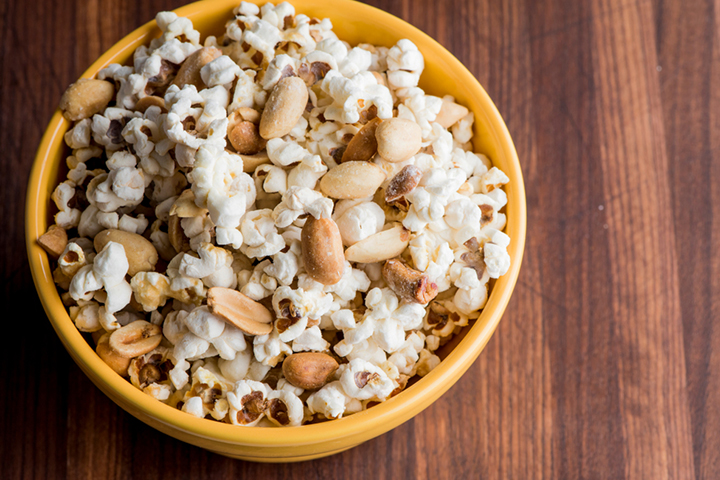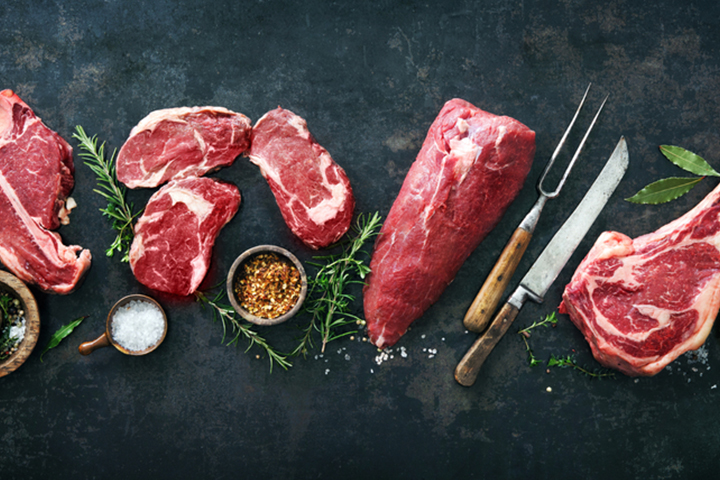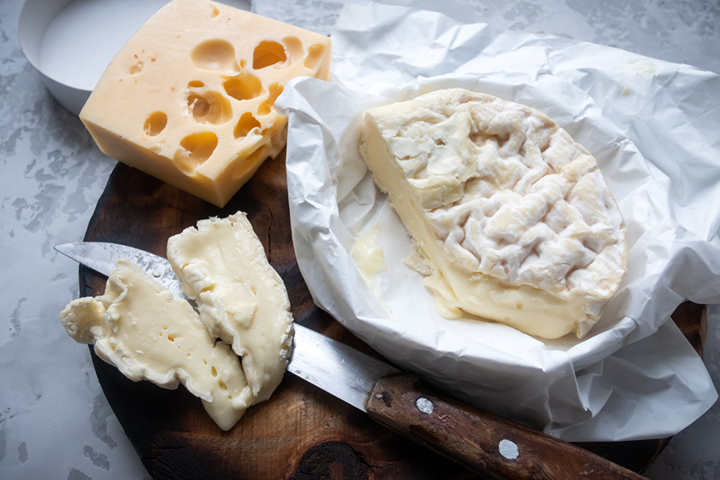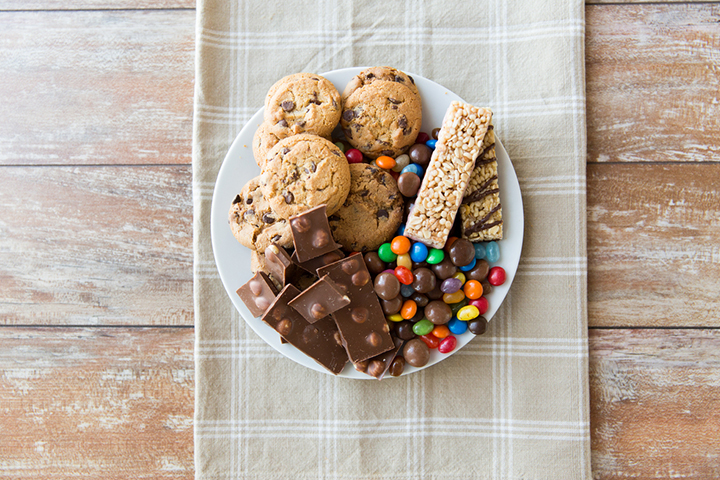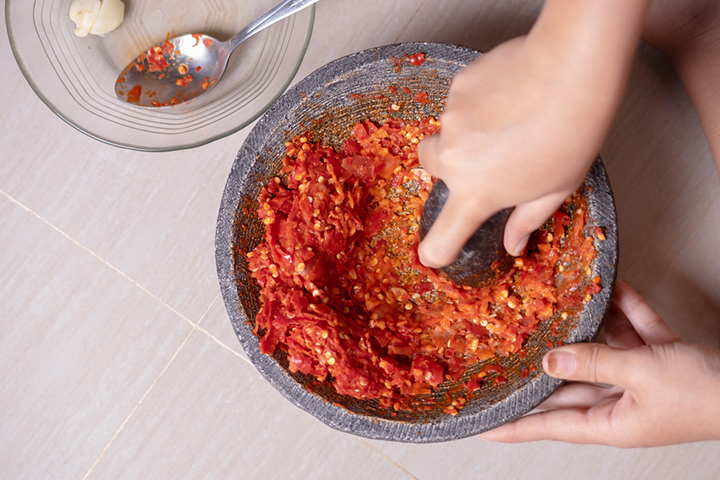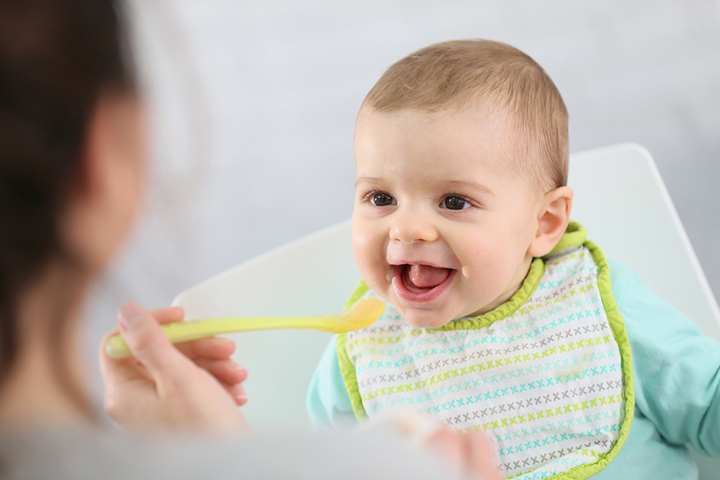
Image: Shutterstock
As a responsible parent, your baby’s well-being is your top priority, especially when it comes to their diet. While there are many nutritious options, it’s crucial to be aware of potential food hazards. In this article, we’ll explore unsafe foods based on your baby’s age and provide valuable insights to help you navigate their diet. Let’s dive in and help to keep your baby safe and healthy!
- Foods Unsafe For Newborns (0-4 Months)
Image: Shutterstock
During the first few months of your baby’s life, their digestive system is still developing, and they rely solely on breast milk or formula for nutrition. It’s crucial to avoid introducing solid foods or any other liquids, as their delicate digestive system may not be ready to process them. Stick to breast milk or formula exclusively, ensuring they receive the essential nutrients they need for healthy growth and development.
- Foods Unsafe For Infants (4-12 Months)
Image: Shutterstock
As your baby grows and reaches the stage of starting solid foods, there are certain foods you should avoid due to potential allergenic properties or choking hazards. Here are some key categories to be mindful of:
1. Allergenic Foods
Image: Shutterstock
Common allergenic foods, such as peanuts, tree nuts, eggs, cow’s milk, wheat, soy, fish, and shellfish, should be introduced one at a time, following your pediatrician’s guidance. This allows you to monitor any potential allergic reactions and identify specific allergens if they arise.
2. Honey
Image: Shutterstock
Avoid giving honey to infants under one year old. Honey can contain bacteria that produce toxins, which can lead to a rare but serious condition called infant botulism (1).
3. Choking Hazards
Image: Shutterstock
Certain foods pose a higher risk of choking for infants. These include whole nuts, popcorn, large chunks of fruits or vegetables, and hard candies. It’s important to prepare foods in a way that minimizes the risk of choking by cutting them into small, manageable pieces or offering age-appropriate textures.
- Foods Unsafe For Toddlers (1-3 Years)
As your baby transitions into toddlerhood and develops more independence in their eating habits, there are additional foods to be cautious about:
1. Raw Or Uncooked Meats
Image: Shutterstock
Avoid feeding your toddler raw or undercooked meats, as they can contain harmful bacteria like Salmonella or E. coli (2). Ensure that all meats are thoroughly cooked to reduce the risk of foodborne illnesses.
2. Unpasteurized Dairy Products
Image: Shutterstock
Unpasteurized milk, cheese, or other dairy products may contain harmful bacteria that can cause serious illnesses. Stick to pasteurized dairy products to ensure your toddler’s safety.
3. High-Sodium Or Sugary Foods
Image: Shutterstock
Excessive consumption of foods high in sodium or added sugars can have negative effects on your toddler’s health. Limit their intake of processed snacks, sugary drinks, and high-sodium foods to promote a balanced and nutritious diet.
4. Caffeine And Carbonated Drinks
Image: Shutterstock
Avoid giving your baby caffeinated beverages like coffee, tea, or soda. Caffeine can affect their developing nervous system and disrupt their sleep patterns. Carbonated drinks pose a choking risk and contribute to excessive sugar intake. Opt for age-appropriate beverages such as water or breast milk/formula to keep your baby hydrated and healthy.
5. Processed Or Spicy Foods
Image: Shutterstock
It’s best to limit the consumption of processed foods and those that are heavily seasoned with spices for your baby. Processed foods often contain additives, preservatives, and high levels of sodium, which can be detrimental to their developing system. Additionally, spicy foods may cause digestive discomfort or irritation for your baby. Stick to fresh, whole foods prepared with minimal seasoning to provide them with the most nutritious options while minimizing potential discomfort.
- Navigating Your Baby’s Diet Safely
Image: Shutterstock
To ensure your baby’s safety when introducing new foods, follow these guidelines:
1. Introduce Foods Gradually
Introduce new foods one at a time, spacing them a few days apart. This allows you to monitor for any adverse reactions or allergies.
2. Monitor For Allergic Reactions
Watch for signs of food allergies such as rash, hives, vomiting, diarrhea, or difficulty breathing. If you notice any concerning symptoms, consult your pediatrician.
3. Prepare Foods Appropriately
Prepare foods in a way that is developmentally appropriate for your baby’s age and chewing abilities. Cut foods into small, soft, and easily manageable pieces to minimize choking hazards.
4. Seek Professional Guidance
Consult with your pediatrician or a registered dietitian who specializes in infant nutrition. They can provide personalized advice based on your baby’s specific needs and guide you through the introduction of new foods safely.
As a parent, being aware of the foods that can potentially be unsafe for your baby is crucial for their health and well-being. By avoiding certain foods during the early stages of their development and following age-appropriate guidelines, you can provide a safe and nutritious diet for your little one. Remember to introduce new foods gradually, monitor for allergic reactions, and seek professional guidance when needed. With your careful attention and informed choices, you can support your baby’s growth, development, and overall health. Let us know in the comments your baby’s dietary journey!



